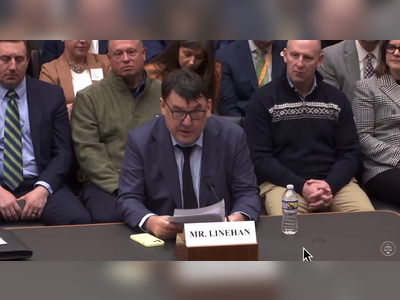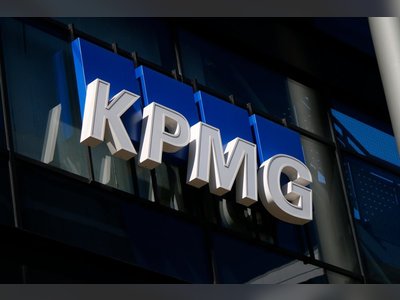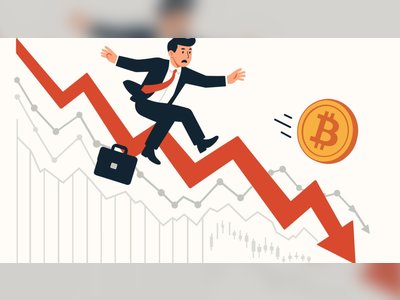
Hungarian Government Implements Price Cap on Essential Foodstuffs
A comprehensive price cap measure results in significant reductions across approximately 1,000 food products starting March 17.
On March 17, 2025, the Hungarian government introduced a price cap initiative, known as the margin cap, effective until May 31, which aims to curb food inflation and offer protection to families.
The measure applies to thirty essential food categories, limiting retailer margins to a maximum of 10%.
Observations from participating stores as well as data provided by the Economic Competition Authority (GVH) indicate notable decreases in prices of affected products, as reported by the Ministry of National Economy (NGM).
Prime Minister Viktor Orbán announced at the end of February that the government finds the inflation rates unacceptable, particularly in relation to food items, prompting consultations with retail representatives to prevent similar price increases in the future.
He expressed that if agreements to control price hikes were not reached, the government would implement further measures to address unreasonable price increases.
The Ministry is particularly focused on addressing the steep rise in food prices, which had contributed significantly to overall inflation rates in Hungary.
According to the latest data, average inflation in Hungary reached 24.5% in January 2025, with food inflation surpassing this at around 30%.
As part of the margin cap, the initial reports showed that, by the end of March 17, approximately 80% of the affected products, particularly within major supermarket chains such as Spar, Penny, and Lidl, experienced price drops.
Average price reductions across these categories were reported to be around 16%, exceeding government expectations.
Further adjustments to prices are anticipated, as some products are still undergoing price reevaluations.
In a press conference on March 18, National Economy Minister Márton Nagy highlighted that the transitional measures have generally been observed to be successful.
He announced ongoing negotiations with suppliers, requesting them to voluntarily freeze prices.
The government has indicated that should these suppliers resist compliance, regulatory measures could be imposed.
Dr. Tamás Kozák, Secretary-General of the National Association of Commerce (OKSZ), confirmed that retailers were adequately prepared for the implementation of the margin cap and have complied with the mandated regulations.
He noted that due to the cap, an average price decrease of over 10% was observed across the market, although some products within the same category might showcase greater variations depending on specific items and suppliers.
To manage the availability of the reduced-price items, major retailers have imposed purchase limits on certain products.
For instance, Lidl restricted several items to customers who do not request VAT invoices, and Spar set limits on the quantity of bulk products.
Tesco also introduced quantity restrictions on dairy items, allowing purchases of specific quantities per individual transaction to ensure equitable access for all consumers.
These modifications reflect the government’s intent to protect public access to essential goods, particularly for households facing economic difficulties.
The price cap is part of a broader strategy to mitigate the economic impact of inflation while fostering compliance within the retail sector.
The measure applies to thirty essential food categories, limiting retailer margins to a maximum of 10%.
Observations from participating stores as well as data provided by the Economic Competition Authority (GVH) indicate notable decreases in prices of affected products, as reported by the Ministry of National Economy (NGM).
Prime Minister Viktor Orbán announced at the end of February that the government finds the inflation rates unacceptable, particularly in relation to food items, prompting consultations with retail representatives to prevent similar price increases in the future.
He expressed that if agreements to control price hikes were not reached, the government would implement further measures to address unreasonable price increases.
The Ministry is particularly focused on addressing the steep rise in food prices, which had contributed significantly to overall inflation rates in Hungary.
According to the latest data, average inflation in Hungary reached 24.5% in January 2025, with food inflation surpassing this at around 30%.
As part of the margin cap, the initial reports showed that, by the end of March 17, approximately 80% of the affected products, particularly within major supermarket chains such as Spar, Penny, and Lidl, experienced price drops.
Average price reductions across these categories were reported to be around 16%, exceeding government expectations.
Further adjustments to prices are anticipated, as some products are still undergoing price reevaluations.
In a press conference on March 18, National Economy Minister Márton Nagy highlighted that the transitional measures have generally been observed to be successful.
He announced ongoing negotiations with suppliers, requesting them to voluntarily freeze prices.
The government has indicated that should these suppliers resist compliance, regulatory measures could be imposed.
Dr. Tamás Kozák, Secretary-General of the National Association of Commerce (OKSZ), confirmed that retailers were adequately prepared for the implementation of the margin cap and have complied with the mandated regulations.
He noted that due to the cap, an average price decrease of over 10% was observed across the market, although some products within the same category might showcase greater variations depending on specific items and suppliers.
To manage the availability of the reduced-price items, major retailers have imposed purchase limits on certain products.
For instance, Lidl restricted several items to customers who do not request VAT invoices, and Spar set limits on the quantity of bulk products.
Tesco also introduced quantity restrictions on dairy items, allowing purchases of specific quantities per individual transaction to ensure equitable access for all consumers.
These modifications reflect the government’s intent to protect public access to essential goods, particularly for households facing economic difficulties.
The price cap is part of a broader strategy to mitigate the economic impact of inflation while fostering compliance within the retail sector.
AI Disclaimer: An advanced artificial intelligence (AI) system generated the content of this page on its own. This innovative technology conducts extensive research from a variety of reliable sources, performs rigorous fact-checking and verification, cleans up and balances biased or manipulated content, and presents a minimal factual summary that is just enough yet essential for you to function as an informed and educated citizen. Please keep in mind, however, that this system is an evolving technology, and as a result, the article may contain accidental inaccuracies or errors. We urge you to help us improve our site by reporting any inaccuracies you find using the "Contact Us" link at the bottom of this page. Your helpful feedback helps us improve our system and deliver more precise content. When you find an article of interest here, please look for the full and extensive coverage of this topic in traditional news sources, as they are written by professional journalists that we try to support, not replace. We appreciate your understanding and assistance.











